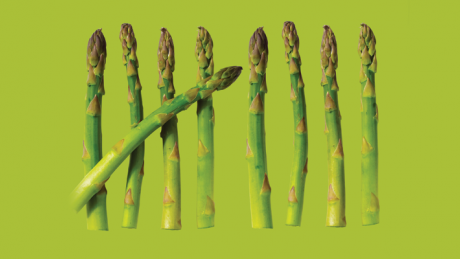How much fruit and veg should you eat a day?
Recent research recommends upping the suggested five pieces of fruit and veg a day to seven. But what about eating nine?

According to recent research, almost nobody eats enough fruit and veg. Even if you're scarfing down the government-recommended five-a-day you're still falling short of the dose that'll help your health - a study of 65,226 men and women indicated the more fruit and vegetables people ate, the less likely they were to die - at any given age. Risk of death by any cause over the course of the study was reduced by 42% by eating seven or more (up to around 10) portions a day. Other countries already suggest this – advice in France and Canada is to eat ten portions, while the Japanese government recommends 17.
But how sustainable is any of that, really? To find out, I spent a month aiming for nine servings of fruit and veg a day - the amount recommended by the US National Cancer Institute.
How I found it
After three days of not getting enough fruit and veg during the day and having to gulp down a mountain of the stuff at 11pm, I realised I couldn’t do this unplanned. I needed to have one portion of veg with breakfast, two with lunch, two with dinner and one as a snack every day. Fruit I did in one go for breakfast. But no matter how I tweaked my diet, munching through six lots of vegetables a day wasn’t easy. The best solution: make stews or stir-fries, where it's possible to stir in whole bags of frozen (or fresh) produce at a time, and get three or four servings in one meal. I started putting blueberries and bananas in my porridge, and eating almost a head of broccoli a day. Despite all the friendly labelling, it's borderline impossible to get your 9-a-day from pre-packaged food - especially if you refuse to count sugar-laden fruit juice.
The results
Mixed. The bad: my weight increased by a kilogram, my body fat went up by one percentage point and I lost almost half a kilo of muscle. The good: my bone mineral level climbed from 4.31 to 4.35, my glucose level fell from 5.22mmol/L to 4.86mmol/L and my HDL cholesterol rose from 0.81mmol/L to 1mmol/L. I didn’t really change my training much, but because of a busy social schedule I was drinking up to 15 pints a week, which probably skewed the results. A lot. On the other hand, I did have more energy – and felt better generally, although that could, of course, be the placebo effect.
What I learned
In order to stick to nine portions a day, you need to rethink your diet - batch-cooking and pre-planning is the only way to get it done. Alternatively, you’d need to hire a chef and nutritionist, neither of which I can afford. But I can definitely get more green veg in by thinking of it as valid snacking fare – raw broccoli with chilli sauce is delicious.
Though the results from my experiment were less than conclusive, one thing that's certain is we could all do with having more fresh fruit and vegetables in our diets. With the emphasis on vegetables over fruit, due to the difference in sugar content. Don't beat yourself up if you can't always get the five, seven or even nine a day you've set yourself to eat. Just ensure you include more in your overall diet. You may not see any immediate benefits, but there's no doubt that the additional vitamins, minerals, phytochemicals, antioxidants (and probably all manner of other good things we haven't come up with fancy names for yet) will contribute to greater overall health than a diet than consists of processed and unnatural – let's face it – rubbish.
Sign up for workout ideas, training advice, reviews of the latest gear and more.

